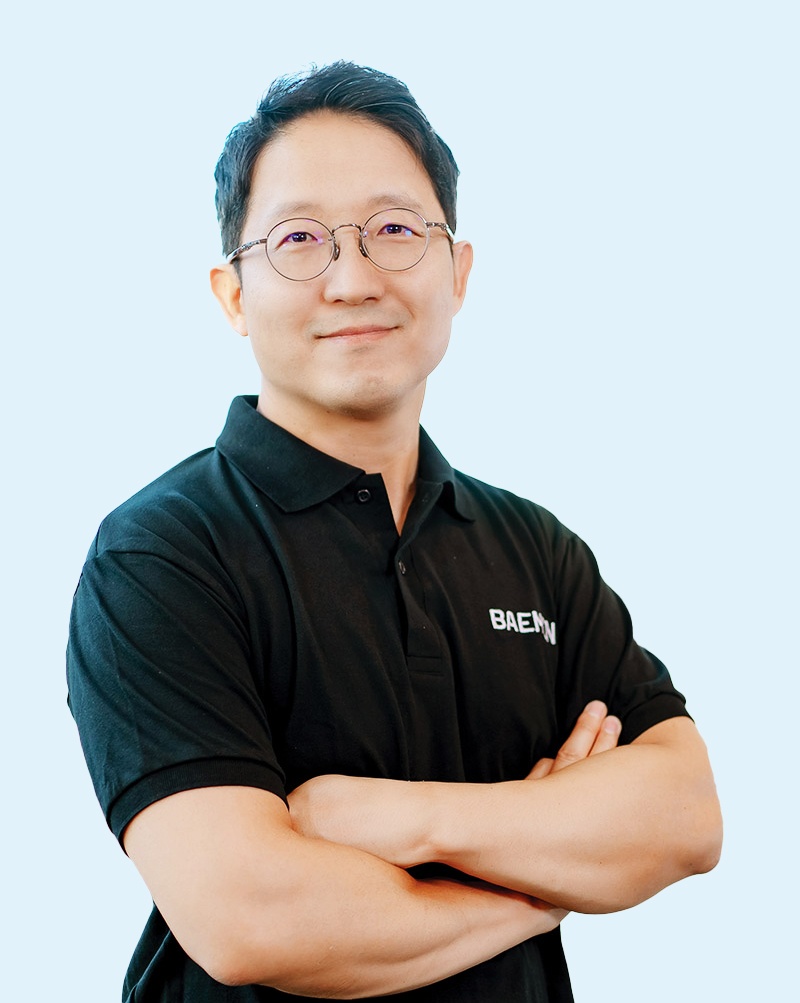Mindset change coming from the top at BAEMIN
 |
| Mindset change coming from the top at BAEMIN |
Some argue that the proliferation of online shopping and food ordering services has increased the demand for single-use plastic. How big a problem is this?
Plastic waste is definitely among the most pressing issues that the food tech industry needs to find solutions for, besides food waste and increased carbon footprint. While people usually mention plastic waste only, I think it’s equally important to factor in other aspects of environmental challenges in the food technology industry that we face so we can come up with more solutions.
Since 2020 in many parts of the world, the use of single-use and disposable food packaging has increased as some believe it to be safer and more hygienic. Users, although becoming more environmentally conscious, seldom consider using leftovers for future meals or reusing meal boxes, plastic bags, or disposable cutlery.
To renovate ourselves, we need to find a better solution because packaging material is becoming more necessary. And we are thinking about how we can make better eco-friendly packaging so that our users can get their food at the right quality but in a safe way.
How successfully are initiatives being carried out to promote green consumption in places like South Korea?
BAEMIN in Korea is the first-ever delivery app to receive an AAA rating (the highest rating) following the United Nations Guidelines for Reducing Plastic Waste & Sustainable Ocean and Climate Action Acceleration (UN GRP). Since its very first days, there have been a certain projects that we have implemented successfully.
Unmanned AI collection devices collect delivery containers to help them turn into valuable resources. We have installed 20 collection robots in the city of Asan to collect plastic containers and the AI will work to determine which one can be recycled and reborn as new material with higher value.
We are also reducing both food waste and the use of plastic containers though in-app options for users. This aims to reduce both plastic and food waste while saving for the merchants. Partnership with merchants is critical. We look for creative ideas and great green practices from our partners to amplify that on our channels and organise green classes on eco-friendly practices for merchant owners to follow.
Other initiatives include education awareness campaigns, such as running recycling diaries on YouTube to guide how to properly recycle delivery packaging; and partnering up with the government and city councils on several programmes to find alternatives to plastic and conduct innovative pilot tests.
What can be done inside and outside the company to change the mindset of customers and merchants to reduce plastic waste?
We are thinking of setting up more B2B Mall so that our merchants can buy more eco-friendly packaging from them. And we will set up to sell more eco-friendly products to our merchants to build a system. So that's number one.
We are also setting up a BAEMIN academy where we will provide content for the eco-friendly environment and also eco-friendly restaurant management. The principle is there for the restaurant, but at the same time, we will also deploy more programmes for our users as well so that they can reduce plastic waste sooner.
In Vietnam, despite being the youngest player in the food tech industry, we have taken several steps to strive toward sustainability. The first step is internal education. We have conducted a series of training sessions for employees in partnership with government officials to raise awareness of the employees and promote greener lifestyles across our operations.
How do the efforts in developing eco-friendly operations contribute to the net-zero commitments?
We want to be a pioneer in improving the eco-friendly ecosystem. Regardless of what competitors are doing, what matters is being an example in the market and then saying that this is the right way, not only for the user but also for our children.
Packaging material is key to being eco-friendly and we will have more campaigns to reduce plastic packing material. We have planned to launch our retail service and we will find a way to reduce order cover packaging material for the retail services.
Internally, we have already set up a management system that measures carbon from our activities. On a quarterly basis, carbon reports are sent to headquarters so that we can manage and keep track of our total carbon emissions. And we can talk about how we can decrease further carbon emissions from our own activities.
Changing employees’ mindset as a starting point is very important. And we expect to have more proactive participation from our employees so that we can take action to reduce carbon emissions going forward.
Recently we emphasised a flexible hybrid working culture as the internal research shows that some portion of carbon emissions come from commuting.
What the stars mean:
★ Poor ★ ★ Promising ★★★ Good ★★★★ Very good ★★★★★ Exceptional
Related Contents
Latest News
More News
- Trung Nam-Sideros River consortium wins bid for LNG venture (January 30, 2026 | 11:16)
- Vietnam moves towards market-based fuel management with E10 rollout (January 30, 2026 | 11:10)
- Envision Energy, REE Group partner on 128MW wind projects (January 30, 2026 | 10:58)
- Vingroup consults on carbon credits for electric vehicle charging network (January 28, 2026 | 11:04)
- Bac Ai Pumped Storage Hydropower Plant to enter peak construction phase (January 27, 2026 | 08:00)
- ASEAN could scale up sustainable aviation fuel by 2050 (January 24, 2026 | 10:19)
- 64,000 hectares of sea allocated for offshore wind surveys (January 22, 2026 | 20:23)
- EVN secures financing for Quang Trach II LNG power plant (January 17, 2026 | 15:55)
- PC1 teams up with DENZAI on regional wind projects (January 16, 2026 | 21:18)
- Innovation and ESG practices drive green transition in the digital era (January 16, 2026 | 16:51)

 Tag:
Tag:



















 Mobile Version
Mobile Version